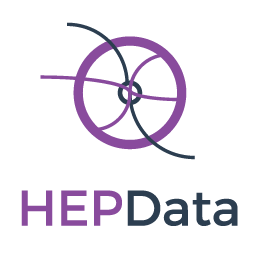Source code for hepdata.utils.twitter
# This file is part of HEPData.
# Copyright (C) 2016 CERN.
#
# HEPData is free software; you can redistribute it
# and/or modify it under the terms of the GNU General Public License as
# published by the Free Software Foundation; either version 2 of the
# License, or (at your option) any later version.
#
# HEPData is distributed in the hope that it will be
# useful, but WITHOUT ANY WARRANTY; without even the implied warranty of
# MERCHANTABILITY or FITNESS FOR A PARTICULAR PURPOSE. See the GNU
# General Public License for more details.
#
# You should have received a copy of the GNU General Public License
# along with HEPData; if not, write to the
# Free Software Foundation, Inc., 59 Temple Place, Suite 330, Boston,
# MA 02111-1307, USA.
#
# In applying this license, CERN does not
# waive the privileges and immunities granted to it by virtue of its status
# as an Intergovernmental Organization or submit itself to any jurisdiction.
"""Twitter API."""
from hepdata.modules.records.utils.common import encode_string, decode_string, truncate_string
from pytwitter import Api
from pytwitter.error import PyTwitterError
from hepdata.config import USE_TWITTER, TWITTER_HANDLE_MAPPINGS
from flask import current_app
from unicodeit import replace
import re
[docs]
def tweet(title, collaborations, url, version=1):
"""
Announce addition or revision of a HEPData record on Twitter.
:param title:
:param collaborations:
:param url:
:param version:
:return:
"""
if USE_TWITTER:
OAUTH_TOKEN = current_app.config['OAUTH_TOKEN']
OAUTH_SECRET = current_app.config['OAUTH_SECRET']
CONSUMER_KEY = current_app.config['CONSUMER_KEY']
CONSUMER_SECRET = current_app.config['CONSUMER_SECRET']
if not OAUTH_TOKEN or not OAUTH_SECRET or not CONSUMER_KEY or not CONSUMER_SECRET:
# log this error
print("Twitter credentials must be supplied!")
else:
api = Api(
consumer_key=CONSUMER_KEY, consumer_secret=CONSUMER_SECRET,
access_token=OAUTH_TOKEN, access_secret=OAUTH_SECRET
)
cleaned_title = decode_string(encode_string(title)) # in case of binary characters in title
cleaned_title = replace(cleaned_title) # use UnicodeIt to replace LaTeX expressions
cleaned_title = cleanup_latex(cleaned_title) # remove some remaining LaTeX encodings
words = len(cleaned_title.split())
# Try to tweet with complete paper title.
# If tweet exceeds 280 characters, keep trying with one less word each time.
tweeted = False
while words and not tweeted:
try:
if version == 1:
status = "Added{0} data on \"{1}\" to {2}".format(
get_collaboration_string(collaborations),
truncate_string(cleaned_title, words), url)
else:
status = "Revised{0} data on \"{1}\" at {2}?version={3}".format(
get_collaboration_string(collaborations),
truncate_string(cleaned_title, words), url, version)
api.create_tweet(text=status)
tweeted = True
print("Tweeted: {}".format(status))
except PyTwitterError as e:
message = e.message
if 'errors' in message and message['errors'][0]['message'].startswith(
"Your Tweet text is too long."):
words = words - 1 # Try again with one less word.
else:
print(message)
break
if not tweeted:
print("Failed to post tweet for record {0}".format(url))
[docs]
def cleanup_latex(latex_string):
"""Replace some spurious LaTeX encoding characters and expressions."""
chars_to_replace = ["$", "{", "}"]
for char_to_replace in chars_to_replace:
latex_string = latex_string.replace(char_to_replace, "")
latex_string = latex_string.replace("~", " ")
exprs_to_replace = [r"\\mathrm\s*", r"\\text\s*", r"\\rm\s*"]
for expr_to_replace in exprs_to_replace:
latex_string = re.sub(expr_to_replace, "", latex_string)
return latex_string
[docs]
def get_collaboration_string(collaborations):
__to_return = ""
if collaborations:
for collaboration in collaborations:
if collaboration.lower() in TWITTER_HANDLE_MAPPINGS:
__to_return += " {0}".format(TWITTER_HANDLE_MAPPINGS[collaboration.lower()])
else:
__to_return += " #{0}".format(collaboration)
return __to_return

